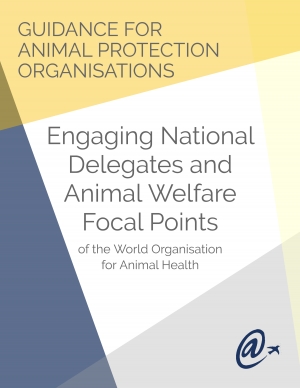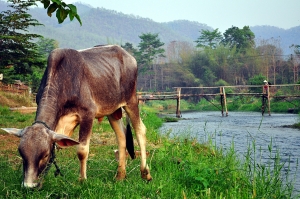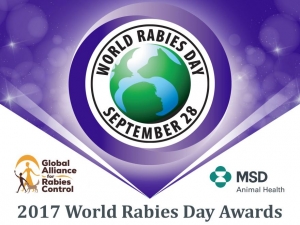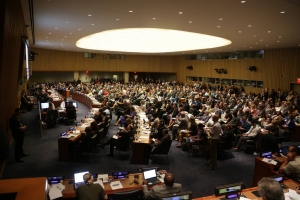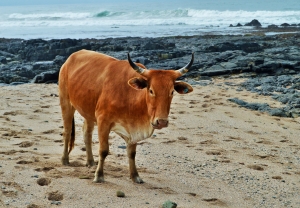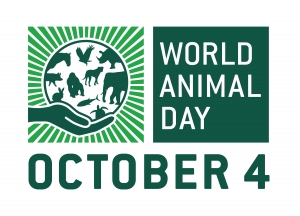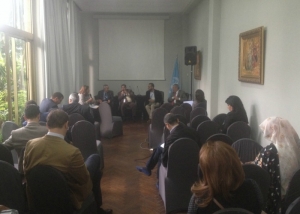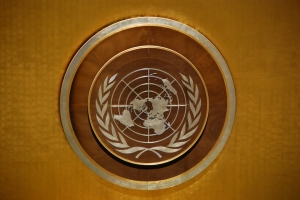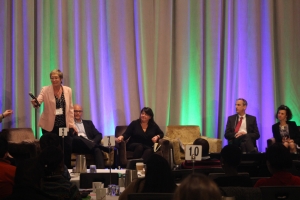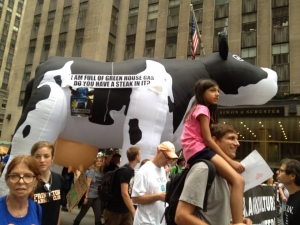
Jessica Bridgers
Jessica is the Executive Director at World Animal Net. Having received a B.S. in biology with minors in chemistry and anthropology from the University of New Mexico, she combines a scientific background with a passion for animal protection. She completed her M.S. in Animals and Public Policy from Tufts University and internships with Humane Society International, Animal Protection of New Mexico, and the New England Anti-Vivisection Society before arriving at World Animal Net. In her free time, she volunteers with horse and wildlife rescues.
WAN Releases Guide for National Animal Protection Organizations in Engaging Their Country's Animal Welfare Representatives
World Animal Net believes that to create lasting change for animals it is necessary to engage policy processes at the national, regional and international levels. We work to influence policies for animals on an international level, primarily at the United Nations, World Bank, and at the World Organisation for Animal Health as a member of the International Coalition for Animal Welfare (ICFAW, a forum for international organizations to collaborate on OIE advocacy). At the same time, we provide resources to help national animal protection organizations leverage international policy frameworks to push animal welfare policy forward in their own country.
World Animal Net Gains Accreditation at the United Nations Environment Assembly
World Animal Net (WAN) is pleased to announce that we now have received formal accreditation as a Nongovernmental Organization (NGO) at the United Nations Environment Programme (UNEP). While WAN has held consultative statues with the United Nations Economic and Social Council since 2001, this new accreditation unlocks opportunities for advocacy for animals within another body of the United Nations (UN).
World Rabies Day Awards Are an Opportunity to Shine Light on the Work of Leaders in Community Rabies Prevention
Rabies is a disease that is almost always fatal, killing 59,000 people and countless animals per yeari. However, rabies is also a disease which is entirely preventable with modern vaccines. Despite this, rabies continues to disproportionally affect marginalized and impoverished communities, with 95% of rabies deaths occurring in Asia and Africa. Additionally, 99% of human fatalities are the result of infection from rabid dogs. This unfortunate disease vector leads to millions of animals being killed, often inhumanely, in a futile effort to prevent future infections.
World Animal Net Pushes for Recognition of Animals and Their Welfare at the United Nations
From July 10-20, I attended the High Level Political Forum (HLPF) of the United Nations. The HLPF is the UN’s platform for review of progress in sustainable development. It also is intended to strengthen the science-policy interface and identify emerging issues.
World Animal Net Heads to the United Nations!
Tell Google to Celebrate World Animal Day by Creating a Google “Doodle”!
WAN partners with RAPAD Morocco to Speak for Animals at UN Regional Meeting
As the UN’s 2017 High Level Political Forum (HLPF) draws near, regional preparatory meetings that feed into the HLPF are taking place around the world. Just two weeks ago, from 3-5 May, the Arab Forum for Sustainable Development took place in Rabat, Morocco. We were pleased to partner with RAPAD Morocco (the French acronym for the Associative Network for Animal Welfare and Sustainable Development), a national federation covering both animal protection and sustainability issues based in Morocco, who was able to attend the Forum and ensure that animals had a voice there.
Call to Action: Can Your Organization Lend a Voice for Animals at the United Nations?
Animal Issues Woefully Underrepresented at the United Nations
As the leading intergovernmental organization promoting human and environmental rights, you would have expected the United Nations (UN) to give proper consideration to animal welfare issues – particularly bearing in mind the many cross-cutting issues involved and the number of intersections between animal welfare and human rights and the environment. Unfortunately, this couldn’t be further from the truth.
WATCH NOW: World Bank Agriculture Global Practice Forum Discussion on Animal Welfare
As has been discussed previously on the blog, World Animal Net’s Janice Cox was invited as a panelist on animal welfare to the recent World Bank Global Practice Forum, which took place in March in Washington, DC.
Six Reasons Animal Advocates Should Participate in the People’s Climate March (and Why Environmentalists Should Listen to Them)
WAN participated in the 2014 People’s Climate March, where we brought a giant inflatable cow emblazoned with the words, “I’m full of greenhouse gases, do you have steak in it?” Three years later, we are proud partners of the People’s Climate March, which will take place April 29th. There will be numerous marches in the United States, but also around the world. As partners of the March, we want to take the opportunity to call on animal advocates to take part in the March.

